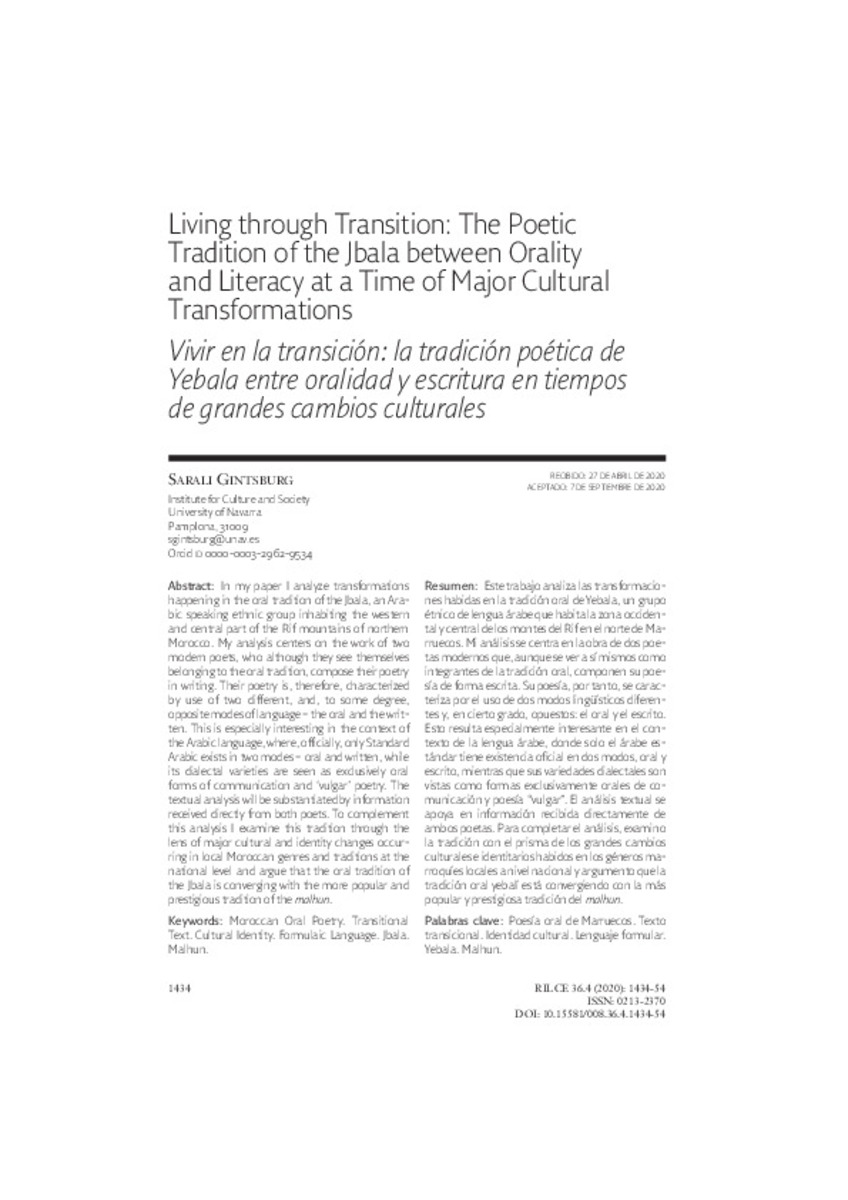Living through Transition: The Poetic Tradition of the Jbala between Orality and Literacy at a Time of Major Cultural Transformations
Palabras clave :
Poesía oral de Marruecos
Texto transicional
Identidad cultural
Lenguaje formular
Yebala
Malhun
Fecha de publicación :
2021
Editorial :
Servicio de Publicaciones de la Universidad de Navarra
Cita:
Gintsburg, S. (Sarali). "Living through Transition: The Poetic Tradition of the Jbala between Orality and Literacy at a Time of Major Cultural Transformations". Rilce: Revista de Filología Hispánica. 36 (4), 2021, 1434 - 54
Aparece en las colecciones:
Estadísticas e impacto
0 citas en

0 citas en

Los ítems de Dadun están protegidos por copyright, con todos los derechos reservados, a menos que se indique lo contrario.








